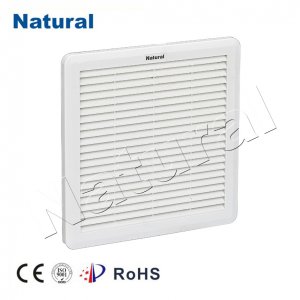In the quest for cleaner and more comfortable indoor environments, two unsung heroes often play a crucial role: the fan and the filter. These unassuming components may not grab the headlines, but they are the backbone of many heating, ventilation, and air conditioning (HVAC) systems. In this article, we will explore the importance of fans and filters in maintaining indoor air quality and ensuring comfort.

The Fan: A Breath of Fresh Air Fans are the workhorses of HVAC systems. They serve a dual purpose: to circulate air and maintain a consistent temperature throughout a space. Whether it’s a ceiling fan in your living room or a large industrial fan in a manufacturing facility, these devices help in the distribution of conditioned air, making it possible for us to enjoy a comfortable environment. Temperature Control:Fans facilitate the even distribution of conditioned air in a room, helping to maintain a uniform temperature. In the summer, they create a cooling breeze, while in the winter, they can be reversed to push warm air down from the ceiling. Energy Efficiency:Properly placed fans can allow homeowners and businesses to reduce their reliance on heating and cooling systems, saving energy and money in the process. Improved Air Quality:Fans help in air circulation, preventing the buildup of pollutants and stale air in confined spaces. This circulation can also assist in reducing humidity levels, which can contribute to mold and mildew growth. The Filter: Purifying the Air We Breathe Filters are the unsung guardians of indoor air quality. They are responsible for trapping particles, allergens, and pollutants, ensuring that the air we breathe is as clean as possible. Filters come in various types, with the most common being mechanical and electrostatic filters. Particle Removal:Mechanical filters, such as High-Efficiency Particulate Air (HEPA) filters, are highly effective at capturing particles as small as 0.3 microns, including dust, pollen, pet dander, and even some bacteria and viruses. Allergen Control:For individuals with allergies or respiratory conditions, filters can make a significant difference in reducing exposure to allergens, providing relief and improving overall well-being. Extended Equipment Life:Filters not only improve air quality but also protect HVAC systems by preventing dust and debris from accumulating on sensitive components. This can extend the lifespan of the equipment and reduce maintenance costs. Synergy in Action The true power of fans and filters emerges when they work together within an HVAC system: Air Circulation:Fans distribute air throughout a space, ensuring that all air passes through the filter. This maximizes the filter’s effectiveness in removing contaminants. Energy Efficiency:By using fans to circulate air more effectively, HVAC systems can operate more efficiently, reducing energy consumption and environmental impact. Comfort and Health:Clean, well-circulated air enhances both comfort and health. Properly maintained filters and fans help prevent illnesses caused by indoor air pollutants and create a more pleasant living or working environment. Environmental Responsibility:The efficient operation of fans and filters aligns with sustainability goals by conserving energy and reducing the need for HVAC system maintenance and replacements. In conclusion, fans and filters are the dynamic duo of indoor air quality and comfort. They work tirelessly behind the scenes to ensure that the air we breathe is clean and the temperature is just right. By understanding and appreciating the vital roles these components play in our daily lives, we can make informed decisions to maintain healthier, more comfortable indoor environments. So next time you feel a refreshing breeze or breathe deeply in your climate-controlled space, take a moment to thank the unsung heroes—the fan and filter—making it all possible.